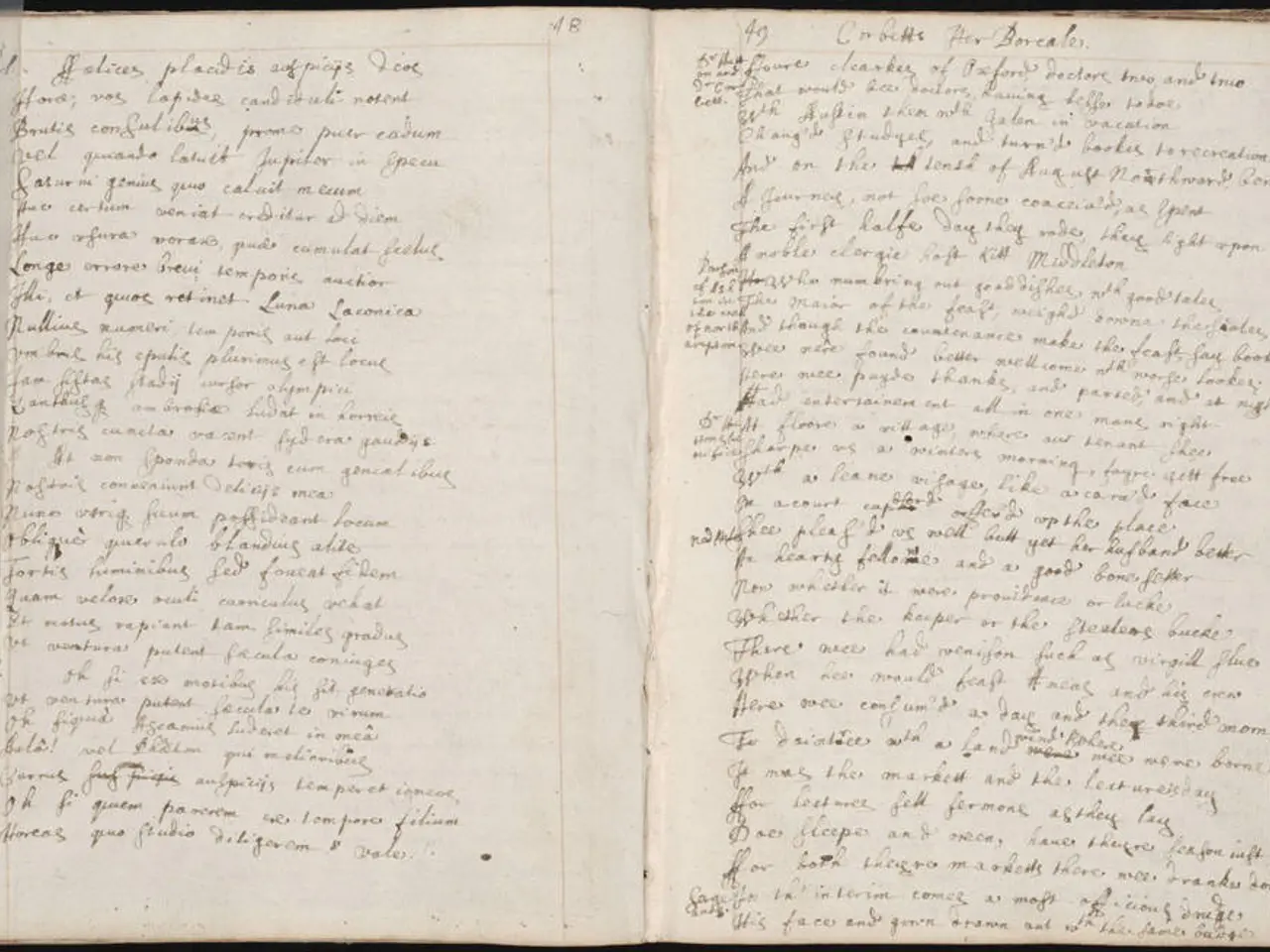Explore a Fresh Narrative: Why Extended Stretches of Time Aren't Essential for Writing
Writing a screenplay is a daunting task, often fraught with feelings of doubt and loss of faith. But a growing body of evidence suggests that consistent, short writing sessions could be the key to overcoming these challenges and making significant progress towards a completed script.
One common misconception about writing is that it requires large blocks of time. However, research shows that writing effectively can be achieved in short, consistent increments such as 30-minute sessions. This approach, when combined with clear goals and a focused environment, has proven beneficial for productivity and creativity.
Consistent short sessions, such as writing for 15 minutes a day, six days a week, can help maintain momentum and surprise a writer with what they can accomplish. Professional screenwriter Pamela Gray emphasizes this approach, stating that it's more important to write consistently than to write for long stretches of time.
Writing daily can help antidote fear associated with writing, a common hurdle for many writers. Fear can manifest in various forms, such as overwhelm, self-doubt, fears of success and failure, and more. By breaking the writing process into manageable chunks, writers can reduce the pressure and make steady progress towards their goals.
Moreover, a daily writing habit can help build a library of scripts and completed work faster. Daily writing can make it easier to reengage with the work, moving a writer towards becoming a professional. Committing to writing daily can also lead to more frequent creative insights, further fuelling the writing process.
Tools like AppBlock or RescueTime can help writers block distracting websites and track productivity, ensuring short writing sessions are used efficiently. Utilizing naturally occurring pockets in a daily schedule for short writing sessions can work better than forcing long, uninterrupted blocks, especially for busy individuals.
Methods like the Pomodoro Technique (25-minute focused bursts followed by short breaks) optimize attention spans within limited time blocks, proving effective for maintaining focus and preventing burnout.
In summary, while long blocks may be useful for some, short, well-planned, and consistent writing increments supported by clear goals and focused environments are effective for writing well and sustaining productivity. By embracing this approach, writers can overcome fear, build a library of work, and move towards professionalism in the screenwriting world.
[1] Productivity Planner [2] The Writing Cooperative [3] Lifehacker
- Incorporating tools like AppBlock or RescueTime into a writing routine can help screenwriters stay focused during their short, consistent writing sessions, ensuring they make the most of these productive moments.
- Adopting a daily writing habit, regardless of whether it's for 15 minutes a day or an hour, can significantly contribute to personal growth and self-development by enhancing productivity and fostering creativity.
- A screenwriter looking to improve productivity can discover helpful strategies on platforms like the Productivity Planner, The Writing Cooperative, or Lifehacker, learning techniques such as the Pomodoro Technique for better time management.
- By committing to consistent writing, a screenwriter can gradually elevate their skill level, with daily practice contributing to the development of a unique writing style and voice in the screenwriting industry.
- Approaching writing as a series of manageable, short sessions can help alleviate the fear of failure and boost a screenwriter's morale, motivating them to rewrite, refine, and ultimately, complete their screenplay.




